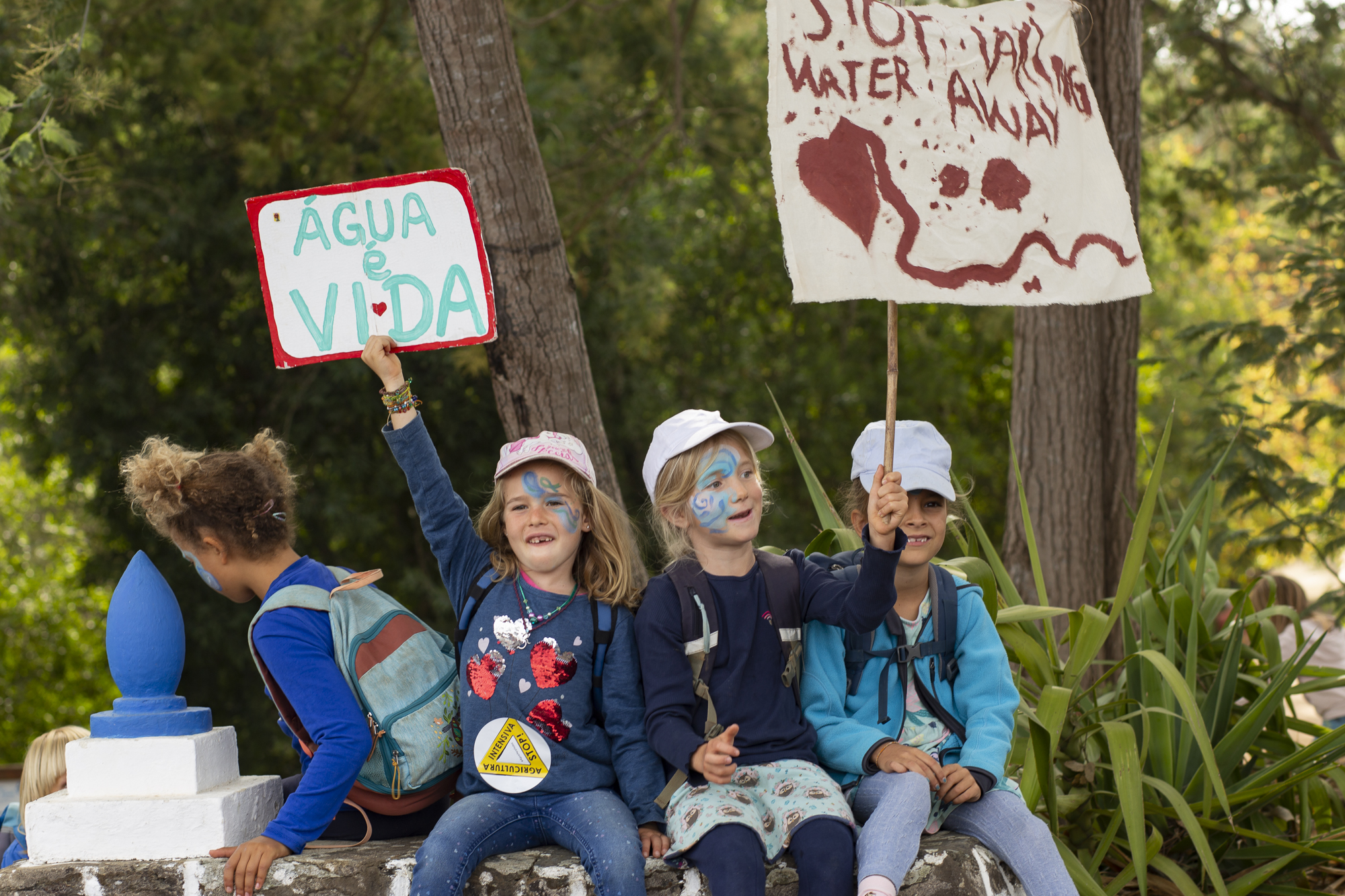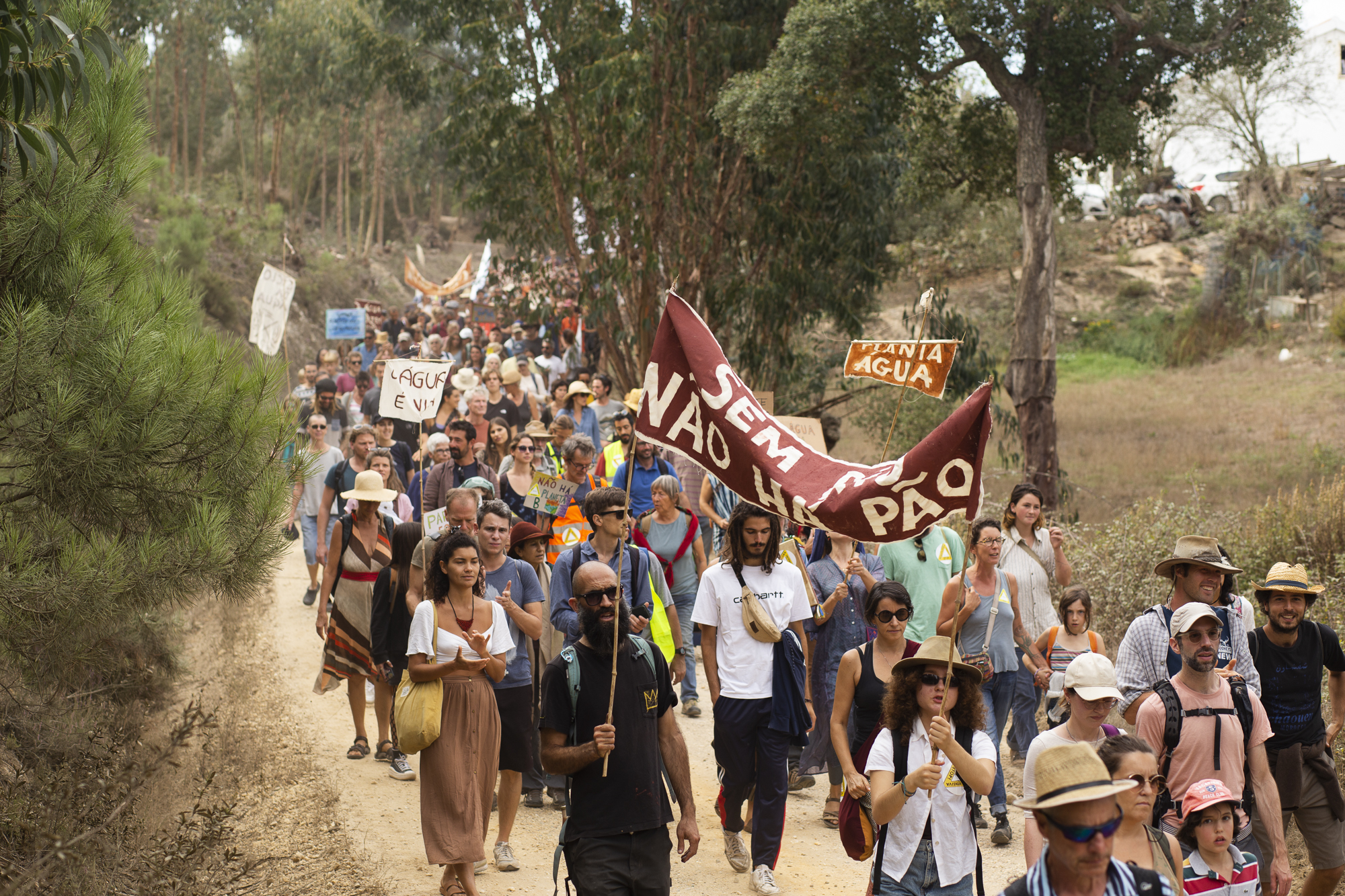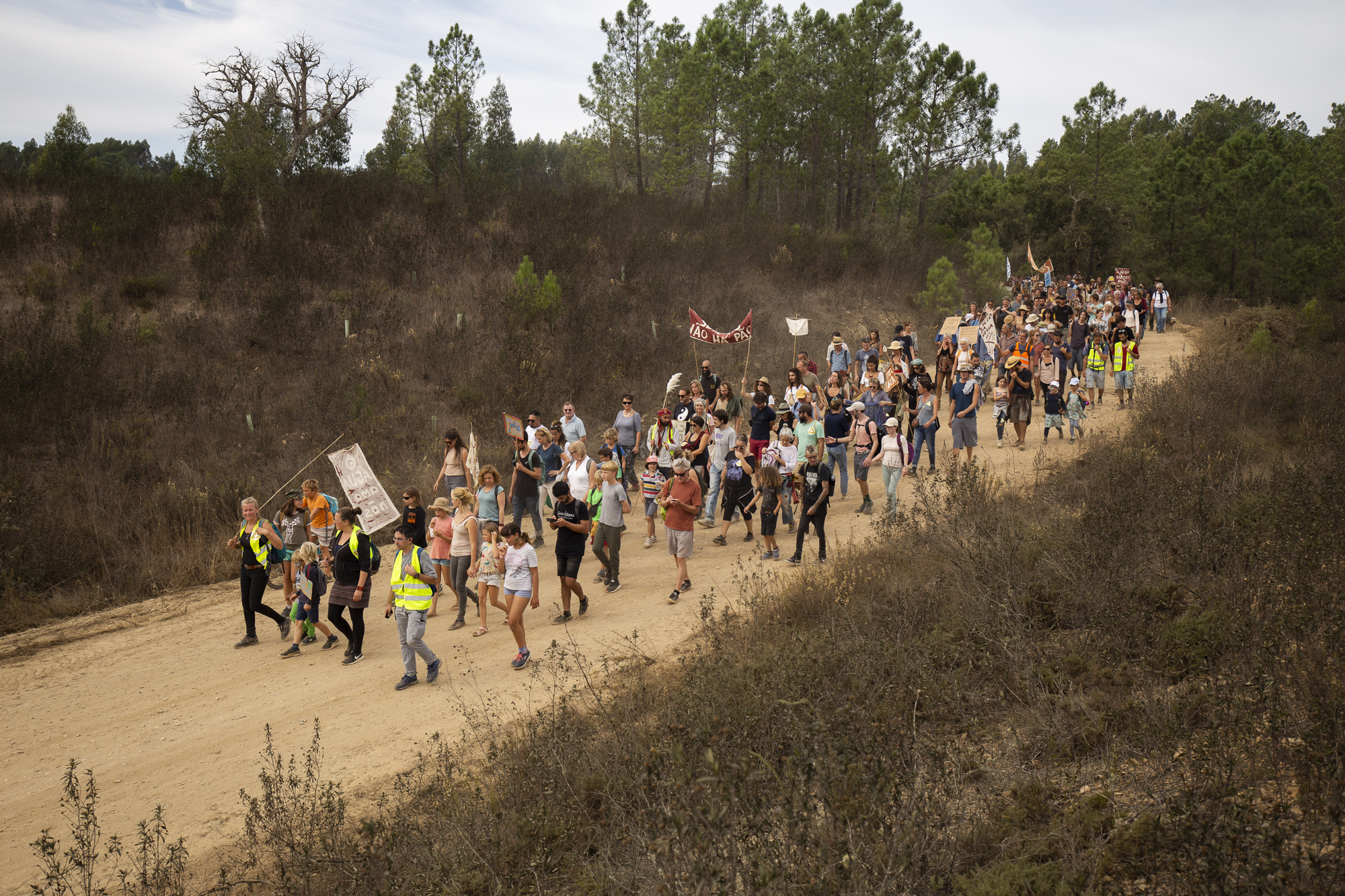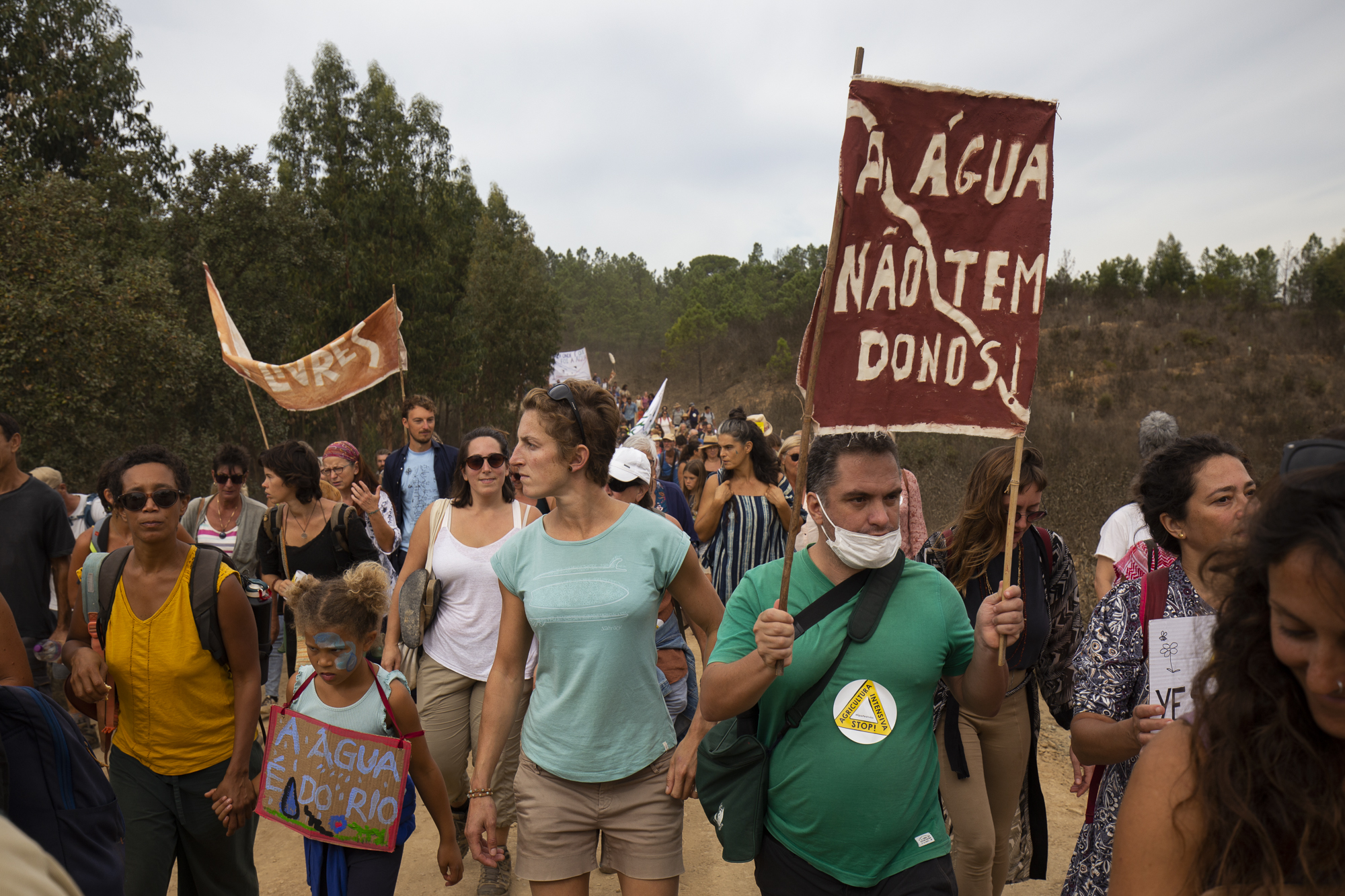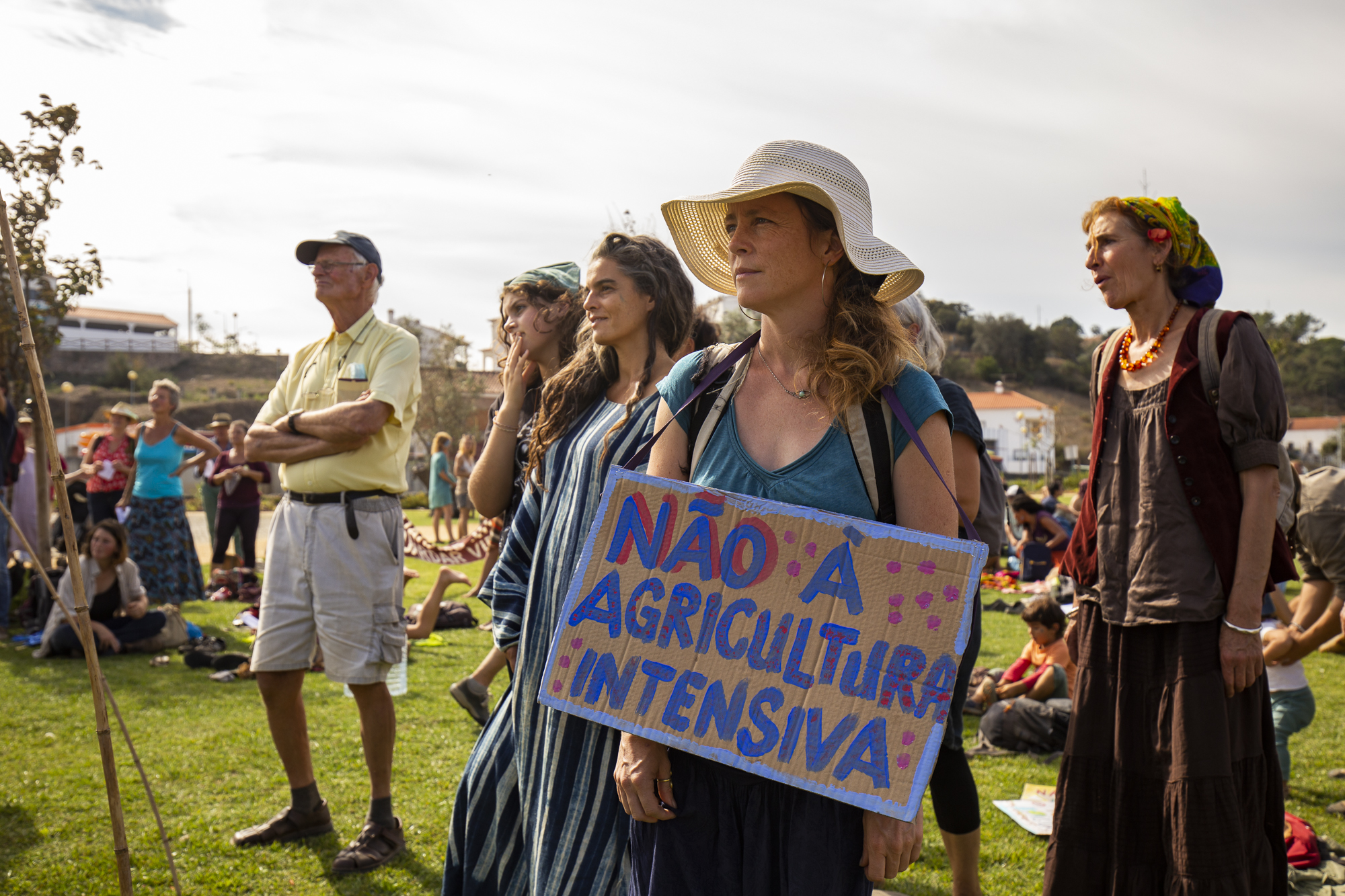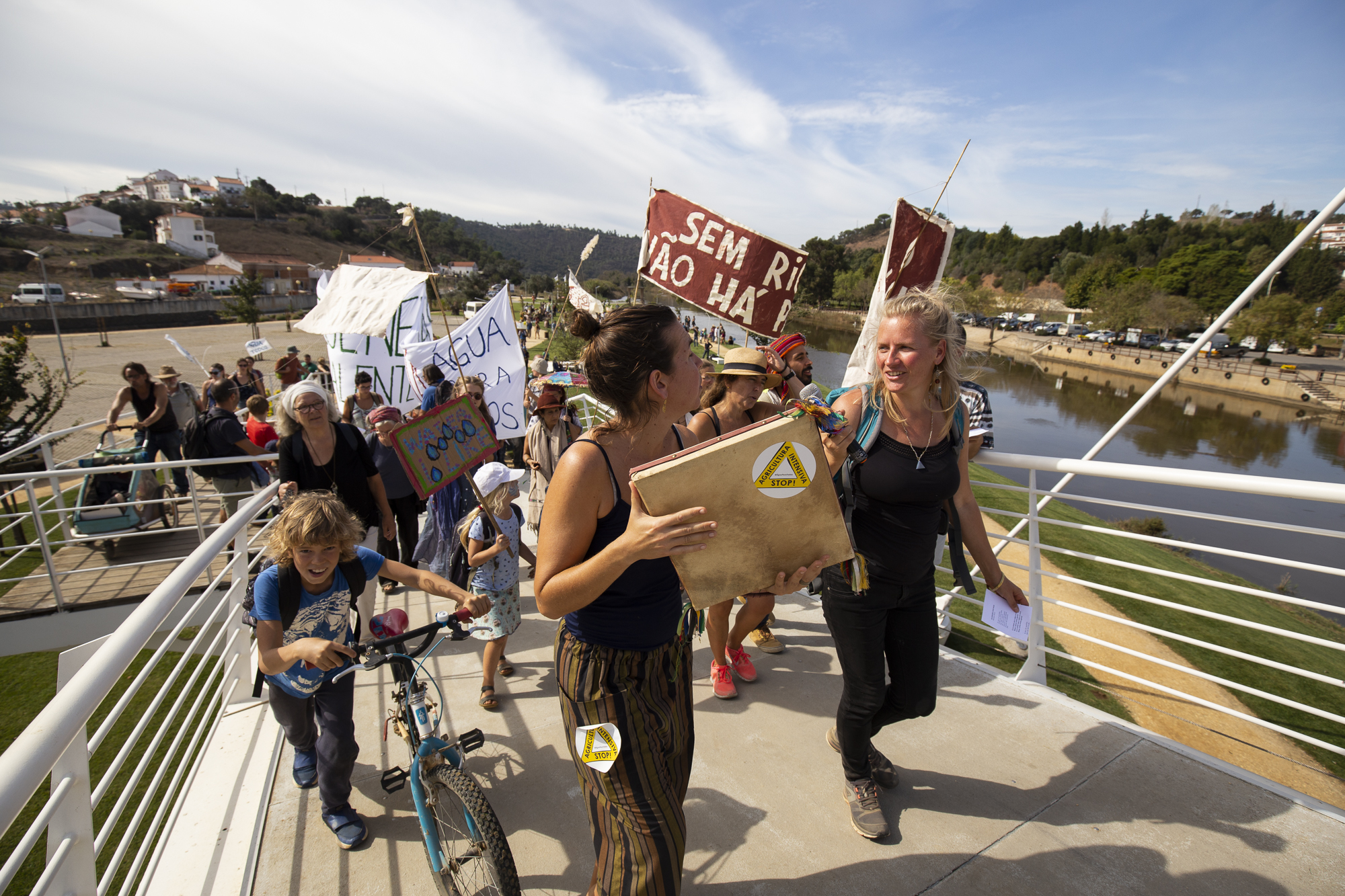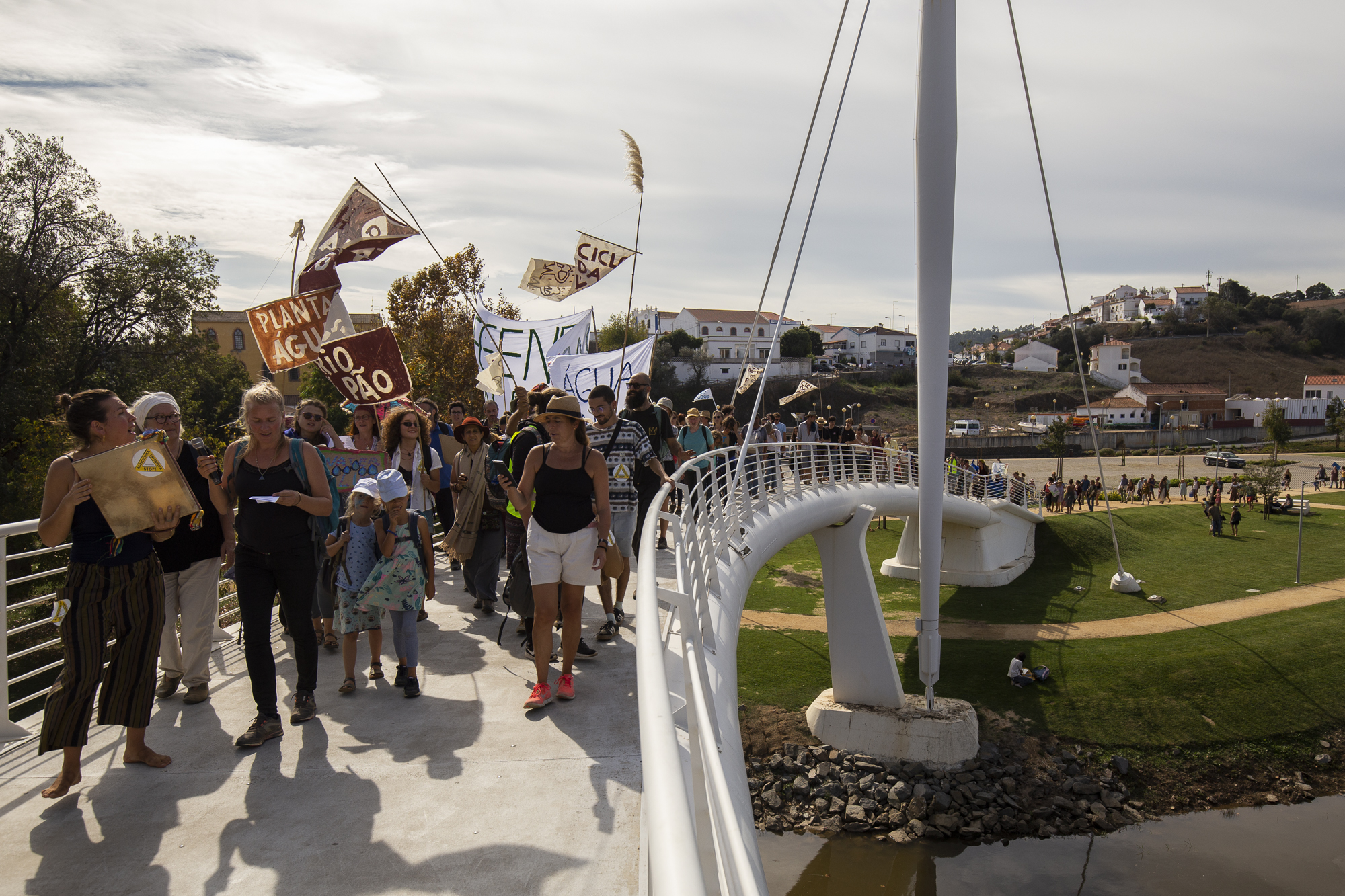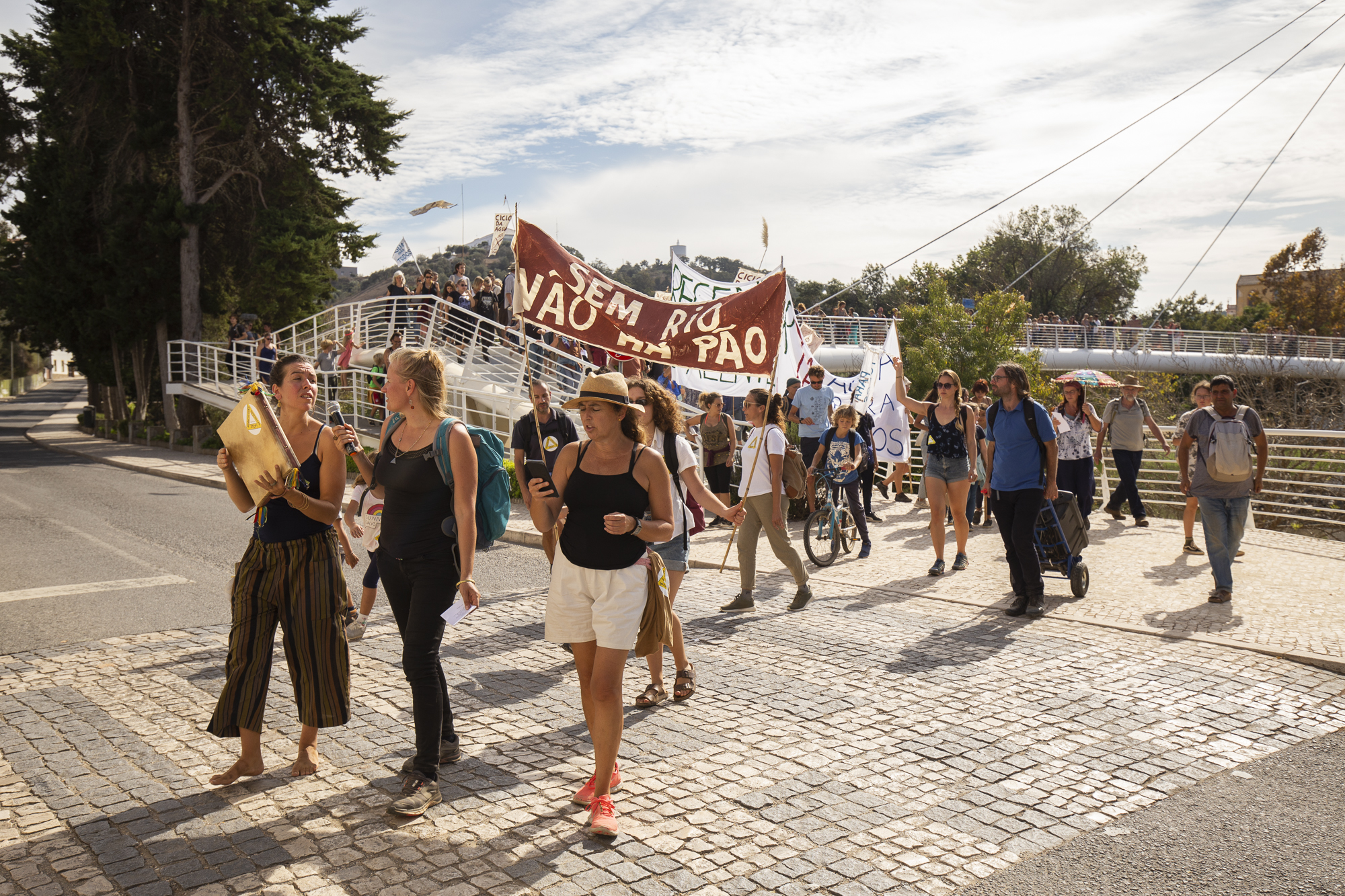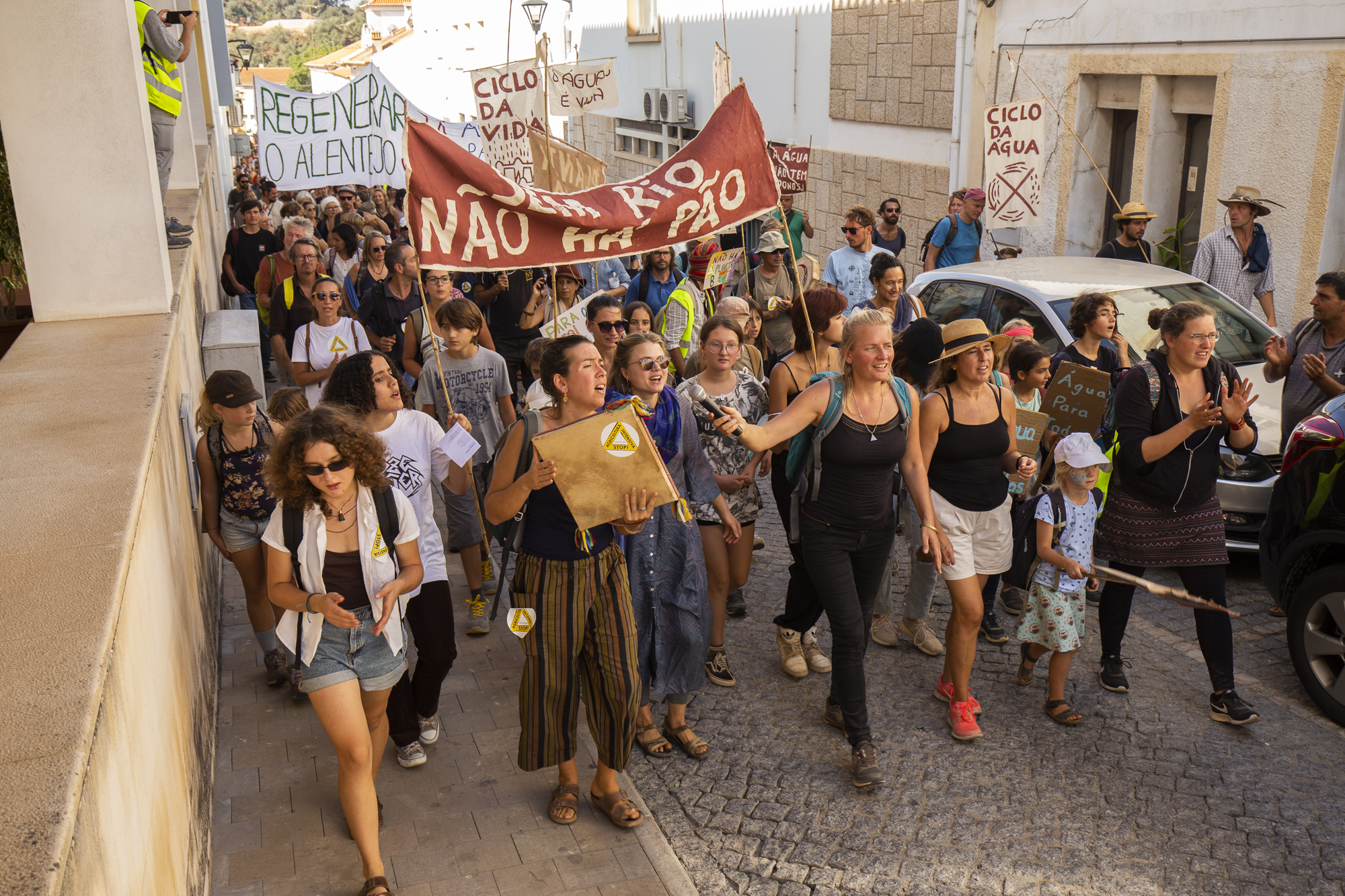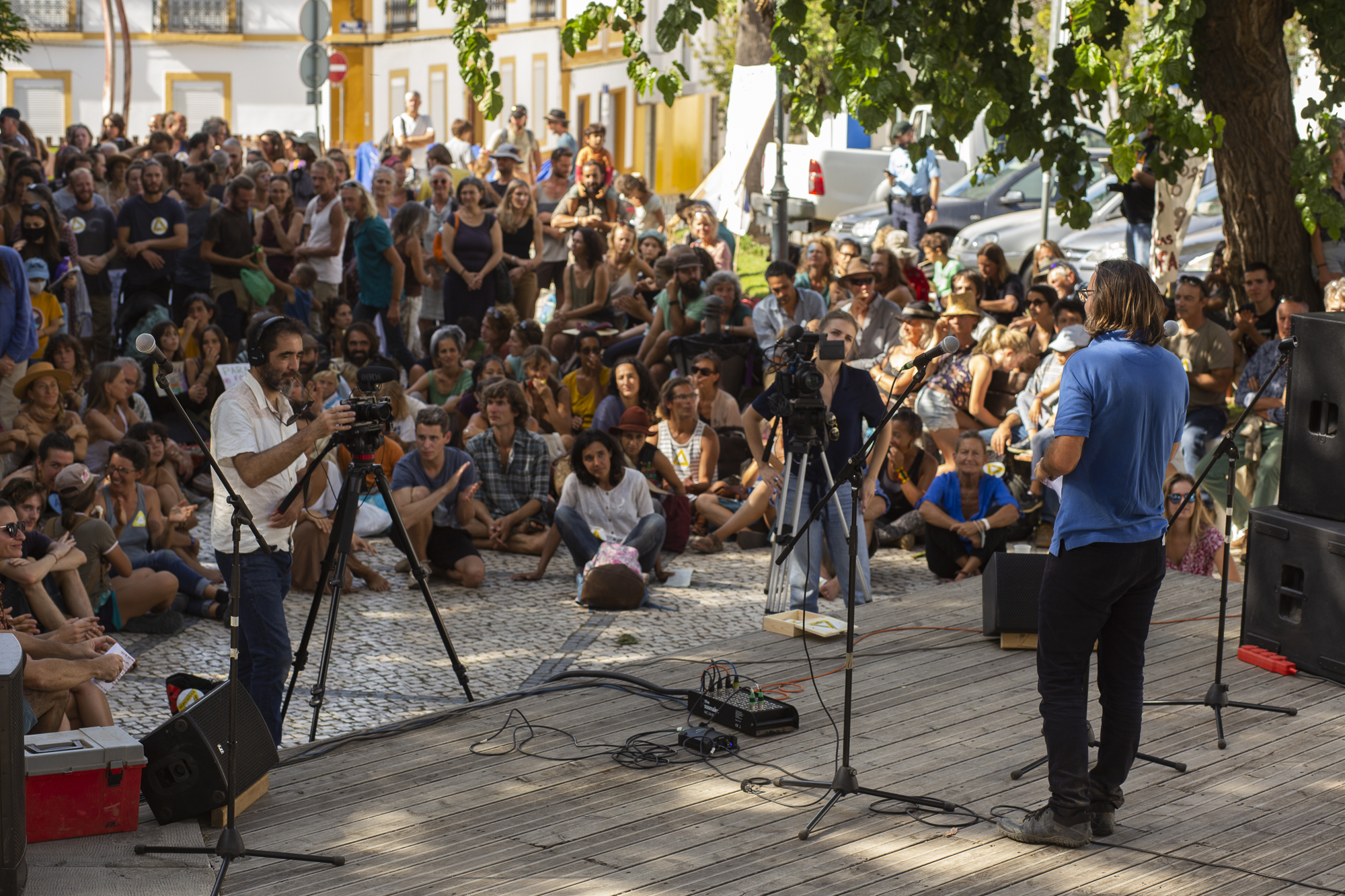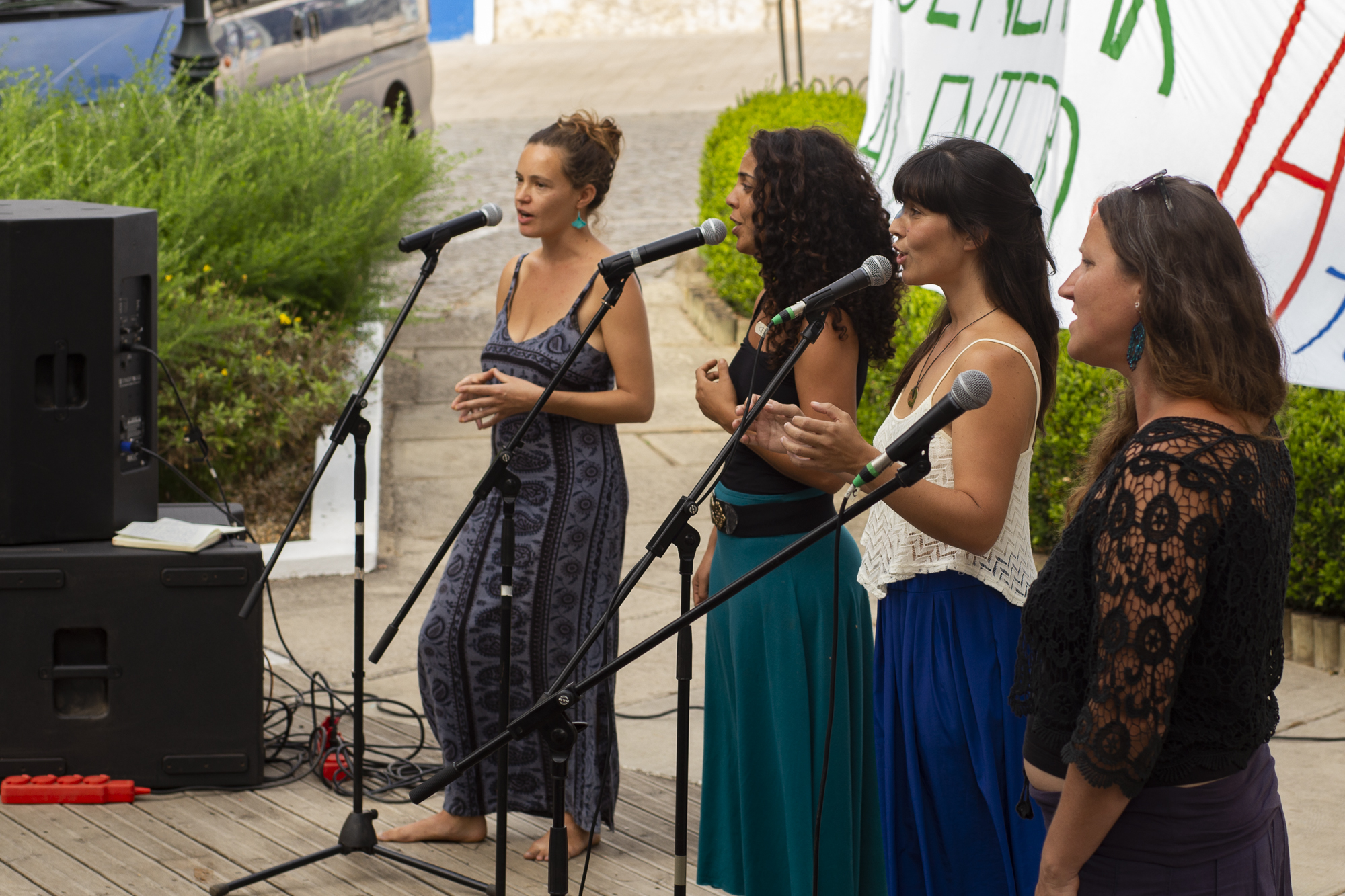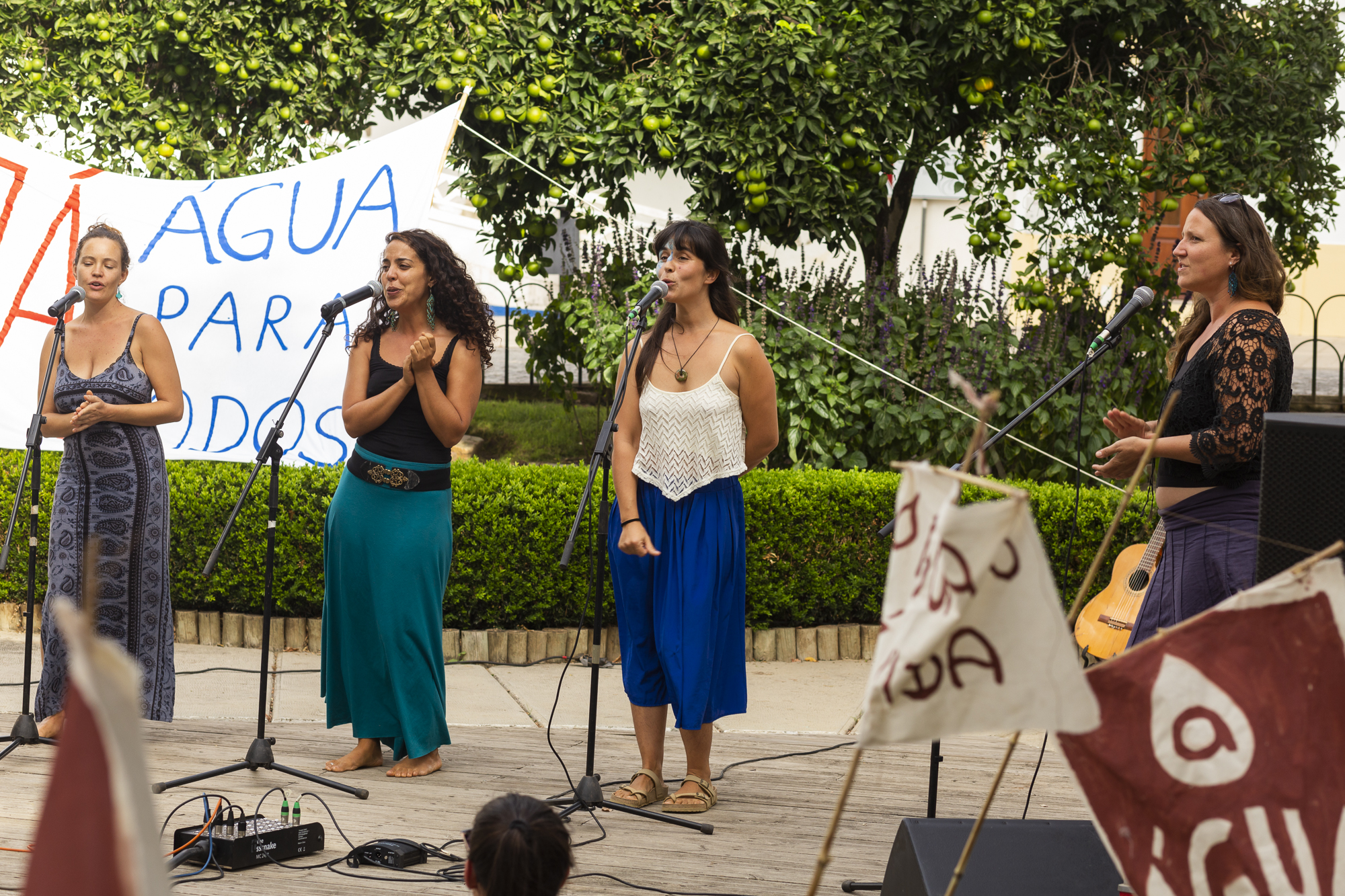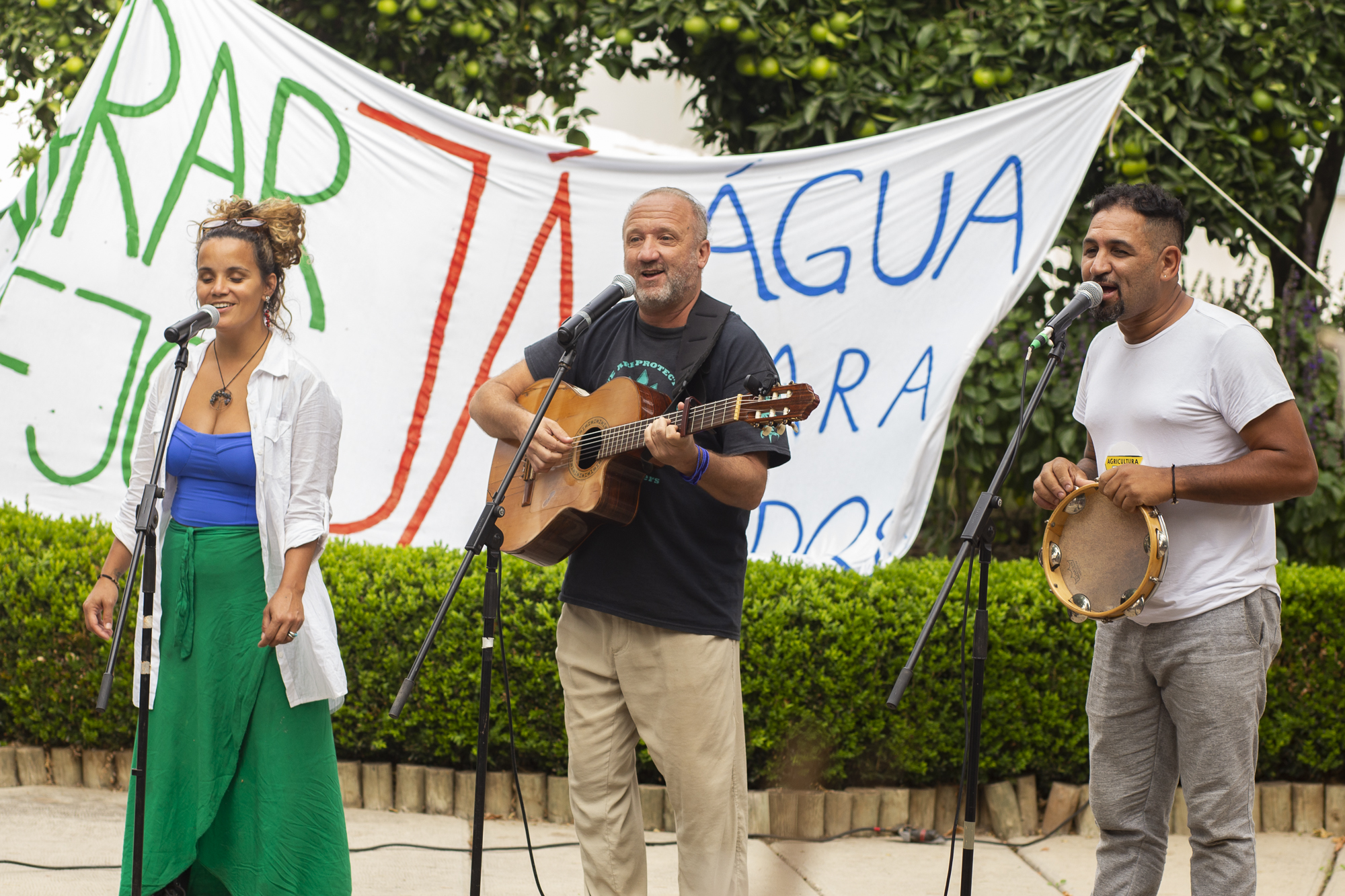“Marcha pela Água”: Water march in Odemira
On Sunday, October 17th, about 400 people walked from Boavista dos Pinheiros to Odemira, in a Water March, against the expansion of agro-industry and for the ecological regeneration of the Southwest Alentejo.
Martin Winiecki, October 26th 2021
(2min mini documentary by Fernando Amaral)
As industrial agriculture is being expanded in several regions of the Alentejo and Algarve, scarce water resources of a region in desertification, are being used for the production of goods that are not of first necessity (berries, lawns, ornamental plants) and exported to northern Europe, with a production model based on the exploitation of migrant workers and natural resources of this region.
Today, the Alentejo is facing a water crisis, generated not only by the current model of industrial agriculture, but by decades of bad practices in soil and water management, and by an economic model of extractivist production.
The march ended in Odemira, at an event that featured figures from various movements and organizations dedicated to the protection of environmental heritage, experts in the field of ecological regeneration, and a lot of music and celebration.
The message was clear: the Alentejo, which today is the scene of extractivism and unsustainable development, could tomorrow model a future of ecological regeneration, community development, and the creation of local solidarity economies and intercultural cooperation.
The march was co-organized by Tamera as well as various initiatives, movements and communities, among them, S. Luís em Transição, CLARA Lab, SOS Rio Mira, Juntos pelo Sudoeste, Fontes Vivas, Climáximo, Eco-Comunidades da Planície, Paradise in Portugal, Regenerarte, Jardim do Mira, Afincerna, Vale Bacias, GAIA Alentejo and counted with the support of the local village councils of Relíquias and Luzianes-Gare.
Prior to the gathering, representatives of those and other groups held a one-and-a-half day gathering at Tamera to explore the possibility of deeper cooperation to both strengthen the resistance against expansive agro-industry and to regenerate the bioregions of the southwest Alentejo.
Photos by Yuval Kovo

